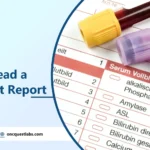In the world of health, there’s a superhero that often works behind the scenes—the pathology laboratory. Let’s explore why these labs are so crucial and the ways they make our health better.
What’s a Pathology Laboratory?
Think of a pathology lab as a health detective’s headquarters. It’s a place where experts, called pathologists, use powerful tools to understand and identify diseases in our bodies.
1. Know Your Enemy: Accurate Diagnosis
Imagine you’re solving a puzzle. Pathologists help doctors by solving the puzzle of diseases. They look at tiny pieces of tissues, blood, and fluids under microscopes to figure out exactly what’s making us sick. This accurate diagnosis is like having a map to guide doctors in treating us the right way.
2. Check-Up Time: Monitoring Treatments
Once the puzzle is solved, the lab keeps an eye on how things are going. By watching for changes in our cells and molecules, pathologists help see if the treatments doctors gave us are doing their job. It’s like having a personal health coach, making sure we’re on the right track to getting better.
3. Health Guardians: Preventing Problems
Pathology labs aren’t just about fixing things when they go wrong; they’re also like health guardians. They help spot risks and potential issues before we even feel sick. Tests like blood tests and screenings act as superheroes, catching problems early so that doctors can stop them from getting worse.
4. Tailored Treatments: Just for You
Have you ever had a piece of clothing tailored to fit perfectly? Pathologists do something similar with treatments. By studying our genes and molecules, they help doctors create treatments that fit us perfectly. It’s like having a medicine that’s made just for you, increasing the chances of it working better.
5. Heroes in Research: Advancing Medicine
Pathology labs aren’t only solving puzzles for individuals; they’re also helping scientists understand how diseases work. By sharing important information, these labs are like heroes in medical research, finding new ways to treat diseases and creating better tools for doctors.
6. Health Watchdogs: Keeping Everyone Safe
Imagine a group of superheroes keeping an eye on the health of a whole community. Pathologists do that by studying patterns of diseases. This helps in spotting and managing health threats, like infectious diseases or outbreaks. Their work is like having health watchdogs to protect everyone.
In the end, pathology laboratories are like health superheroes working tirelessly to understand, treat, and prevent diseases. They play a crucial role in making sure we all stay as healthy as possible.
Frequently asked Questions
Q1: What is the importance of pathology?
A1: Pathology is crucial in healthcare as it provides accurate disease diagnoses, guides effective treatment plans, and contributes to preventive measures. It plays a fundamental role in enhancing patient care, advancing medical research, and maintaining overall public health.
Q2: What is the role of a pathology laboratory?
A2:A pathology laboratory serves as a diagnostic hub where expert pathologists analyze tissues, blood, and bodily fluids to identify diseases accurately. Its role extends to monitoring treatment effectiveness, supporting preventive measures, and contributing crucial data for personalized medicine and medical research.
Q3: What are the benefits of pathological diagnosis?
A3: Pathological diagnosis provides precise identification of diseases, guiding tailored treatment plans for optimal patient care. It also supports early detection, preventive measures, and contributes valuable data for medical research, fostering advancements in healthcare.





